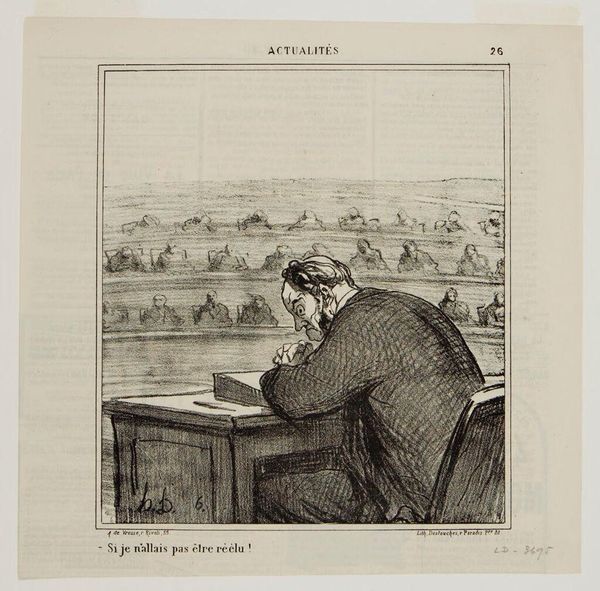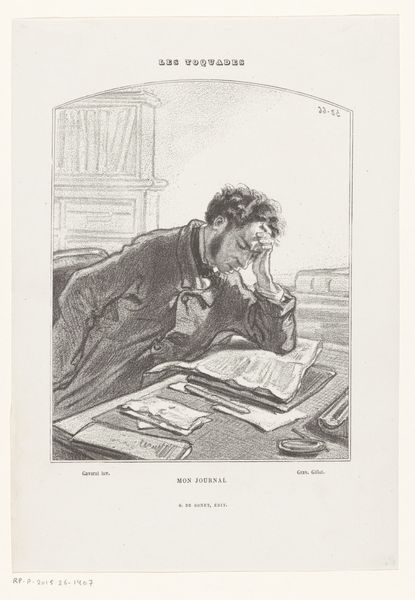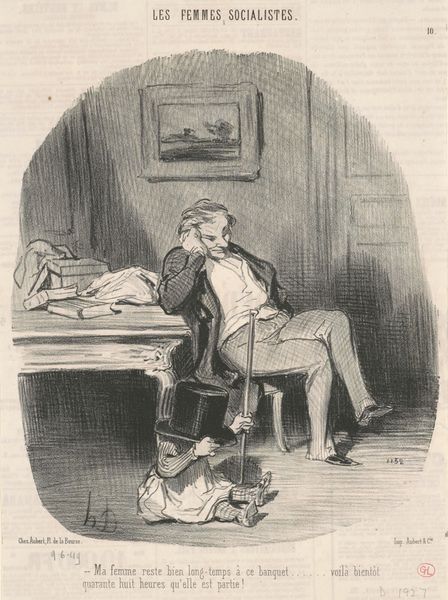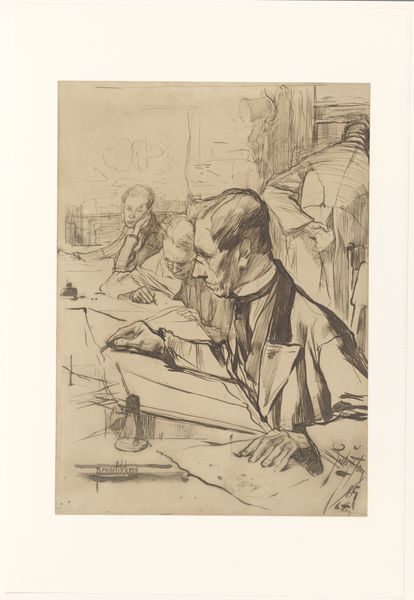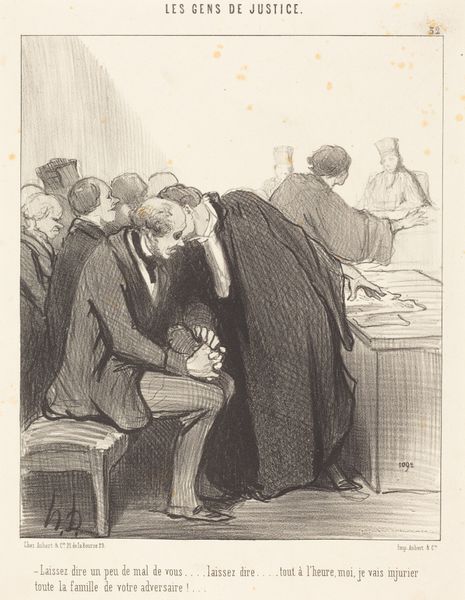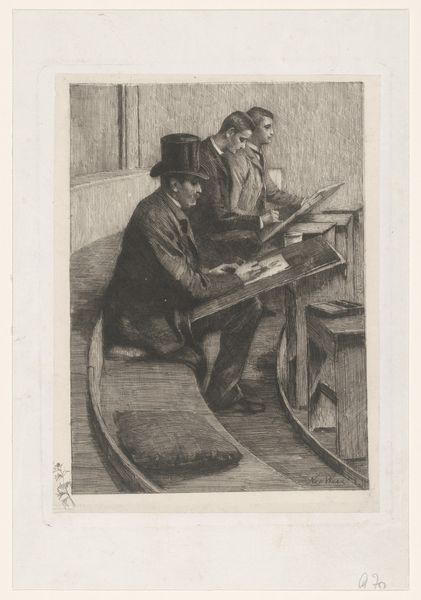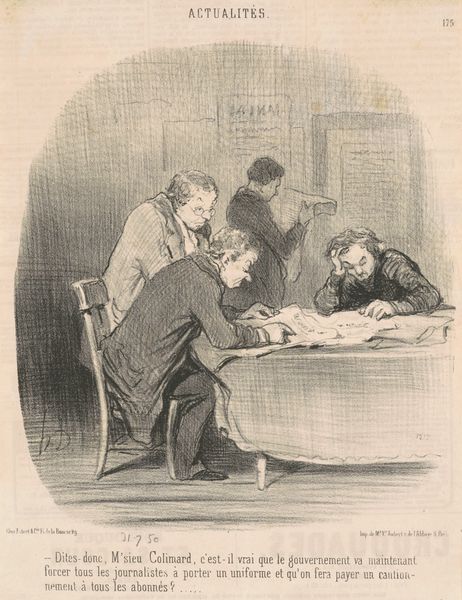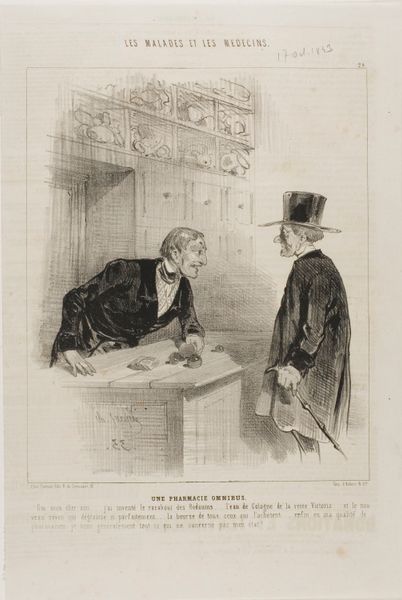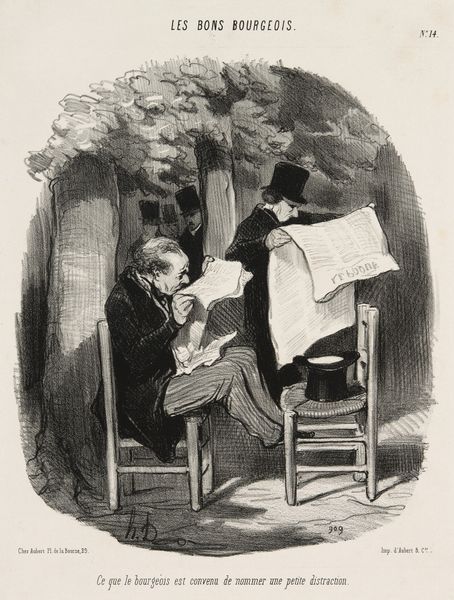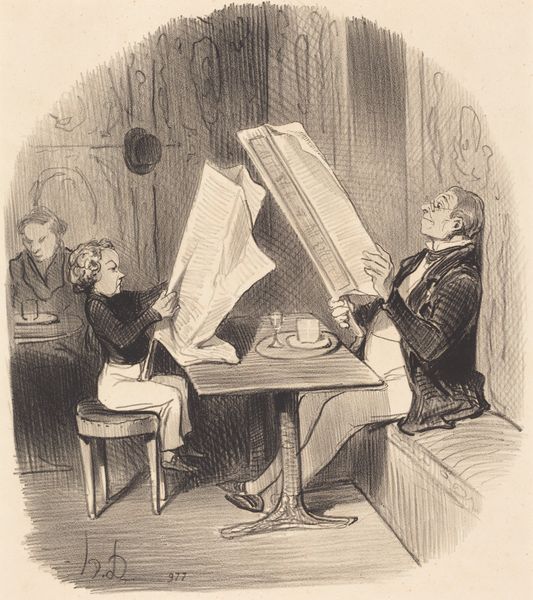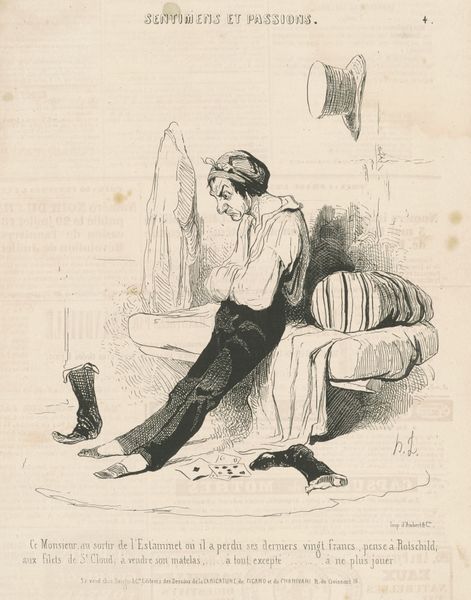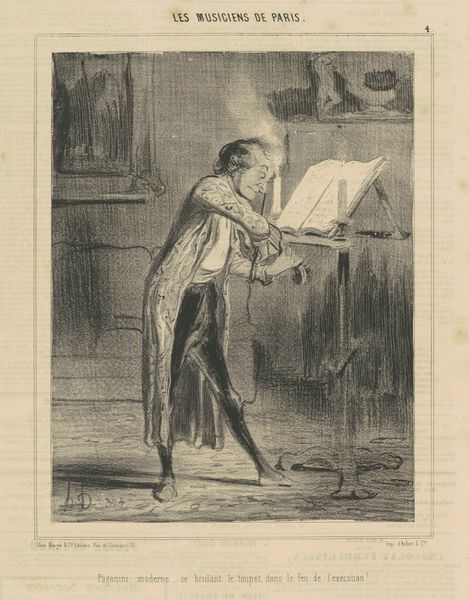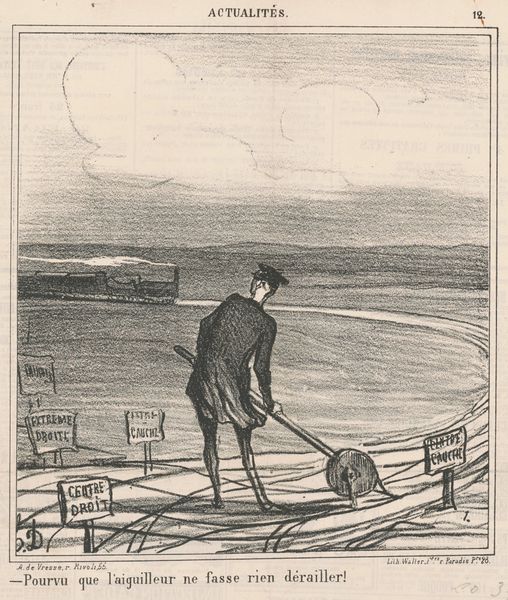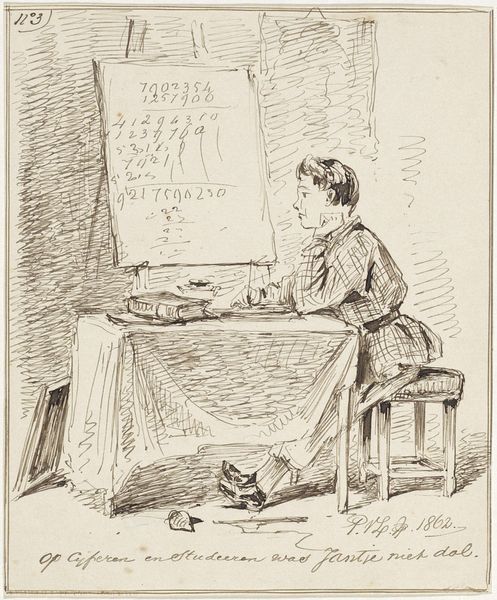
Copyright: National Gallery of Art: CC0 1.0
Curator: Oh, this lithograph really strikes a chord. It’s titled "Si je n'allais pas être réélu!", which translates to “If I were not to be re-elected!”, crafted by Honoré Daumier back in 1869. Editor: My goodness, he looks tormented. That concentrated stare, clasped hands—he practically vibrates with anxiety. It's a really claustrophobic composition too, with all those shadowy figures looming behind him. Curator: It is. Daumier, through works like this, became the social conscience of his era. He masterfully wielded caricature in prints, like this one, to scrutinize and challenge political figures and social mores, which were so important at that time in France. His works became integral to shaping public discourse through imagery. Editor: So, is this image meant to represent a specific political event? Or is it meant to act more generally? All of those figures almost read like a bad dream. They look so similar that it almost gives the feeling of one big judging amorphous shape that could either swallow you or support you. Curator: Not a specific event, but a widespread phenomenon. Think about the anxieties surrounding power and re-election during that period. Daumier keenly observed how politics affected everyday life. He captured universal human concerns – the fear of losing power and influence is obviously not specific to this era. Editor: Right, it resonates powerfully even now. I'm fascinated by the recurring motif of hands clasped in supplication. We find them in religious iconography, of course, signifying piety, but here, they convey vulnerability, fear. He could also be lying! I guess it depends on what people expected of their political representatives back then. Did people generally think them pious or untrustworthy? Curator: It is fascinating that you bring that up! Think of it this way: while Daumier indeed utilized established symbolic language, he does it with subversive intent. The artist is critiquing not only this individual's apprehension about being re-elected but the performative aspects of politics, the need to feign piety to maintain power. Editor: This adds a whole layer to how I'm taking it now, given how you explain his historical context. This caricature becomes more pointed, doesn’t it? That constant balance that has to happen when governing or representing a populous: being one of the people, but still a leader. That fear makes more sense now, like he's afraid that his performance won't hold water anymore. Curator: Exactly. It’s Daumier’s genius: reflecting anxieties around the political performance itself. He captured not only individual anxiety but mirrors of socio-political uncertainty and broader ethical questions in political leadership that ring true still today. Editor: A fantastic, if troubling, snapshot of the past. Thanks for unpacking its significance. Curator: My pleasure. Always a good day for considering political imagery's impact.
Comments
No comments
Be the first to comment and join the conversation on the ultimate creative platform.
